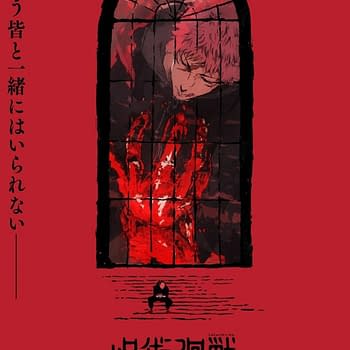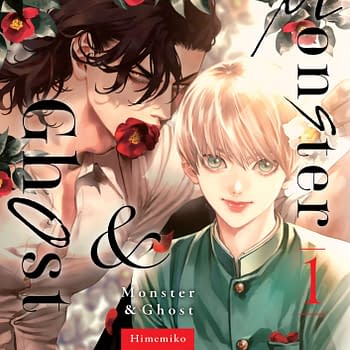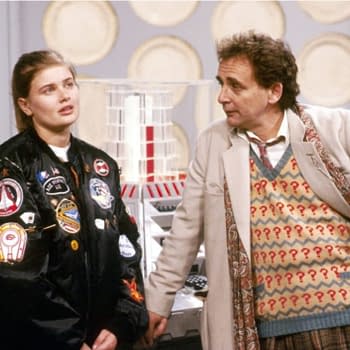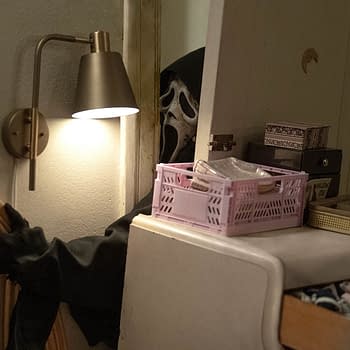Posted in: Film Festival, Movies | Tagged:
New York Asian Film Festival 2018 Roundup: The Good and the Bad
We're at the end of the two weeks of the New York Asian Film Festival (NYAFF), and I've only seen about a dozen of the 58 films on the list. To see them all would have been three full-time jobs, and my brain would be mush by now. I had to look at the lineup and decide on the ones that looked the most interesting to me and how they fit into my schedule. There were a lot that I missed and a few left I have to review, but I may not have it in me to write full reviews for various reasons, chiefly that I couldn't find that much to say about them.
Check out our NYAFF reviews so far right here.
Two new movies from Thailand that I saw:

Premika is a goofy horror comedy about a vengeful ghost at a country resort whose heart has been trapped inside a karaoke machine when she died, as one does, so she that forces a bunch of musicians and wannabes to sing karaoke for their lives. If they sing off-key, they die. If they don't know the lyrics, they die. Basically, if they suck in any way, they die. Gore and slapstick ensues.
This was fun. I really can't think of very much else to say about this movie. Ghost movies are commonplace in Thailand, and this one finds a high concept comedy twist that replaces farce in place of scares or horror. There's a bit of folklore in there merged with pop and modernity here, which I'm all for. First-time director Siwakorn Charupongsa combines gleeful kitsch-pop silliness with horror conventions that feels very Thai to me.
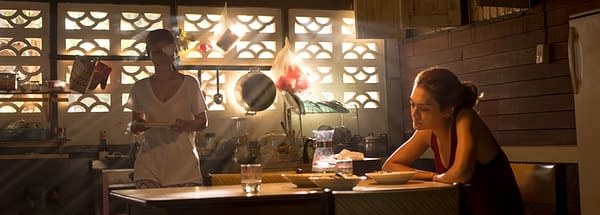
Sad Beauty, on the other hand, is a muddled wannabe-feminist drama-thriller that turned out to be a complete waste of time. Temperamental actress-model Yo is having career troubles for acting up on set and leans on her best friend Pim for emotional support, often taking her for granted and treating her like a peon. Pim is diagnosed with cancer, and as if that wasn't enough, the two women end up killing Pim's abusive stepfather. The trauma of having to dispose of the body drives a wedge between them, as this type of thing tends to do. Eventually Yo decides to stick with her best friend, but she ultimately fails her when Pim needs her the most when her cancer gets worse, because she's too busy hooking up with some guy at a club.
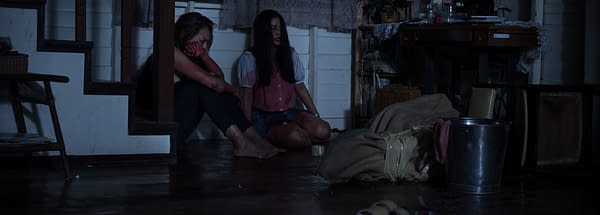
This is the first time in years that I've actually hated a movie. This movie is slickly made but utterly shallow and completely lacking in any insight. It seems to think the completely selfish, self-obsessed Yo is someone worth following when she constantly whines about how bad things are for her. She only watches Pim do all the heavy lifting in disposing of the body, and only cares about her career, clubbing, doing drugs, and getting off with some boy-toy. She's a completely despicable narcissist who doesn't change at all at the end, and the whole story is a waste of time. There's nothing feminist or empowering about this movie at all, so its director's claims of such are total rubbish. Unless "being a supermodel is really hard, especially when your best friend is dying of cancer and has to dispose of a body" is a kind of life lesson we all need to learn. I just found this movie loathsome in its utter cluelessness and privilege.
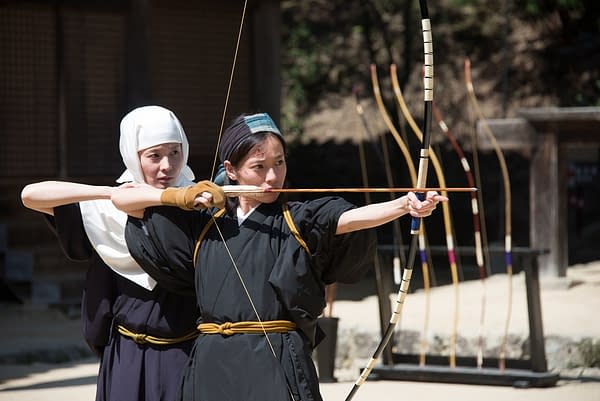
I regret I wasn't able to see the Malaysian entries in the festival or the rest of the movies from the Philippines, or the rest of the Taiwanese entries. Or the rest of the Japanese, Hong Kong, Chinese, and South Korean movies, for that matter.
Japanese director Masato Harada got a Lifetime Achievement Award at the festival this year, being one of the preeminent directors in Japan and one of the last of the Old School directors who also chose stories with progressive themes about politics, multiculturalism in Japan, and women's rights. He was mentored by Howard Hawks in Hollywood before starting his directing career in 1979.
I'd been watching Harada's movies on and off since the 1990s, including his seminal Yakuza road movie Kamikaze Taxi, which put him on the map as a director with things to say. He might be best known in the West for acting in Tom Cruise's white guy fantasy The Last Samurai. His two other films in the festival are quite recent and his first foray in period drama. Kakekomi is a feminist historical drama about women fleeing bad marriages who take refuge in a temple under the protection of a tough and pragmatic abbess while their husbands wait and stalk the outside. Sekigahara is the biggest Japanese historical epic in years, depicting the key battle from the 1600s that shaped the fate of Japan ever since, and Harada takes a surprising and contrary view that perhaps the wrong side won and turned Japan into a less humane, more militaristic nation that persists to this day.
And that's it for this year's festival, a snapshot of the Asian movie landscape of the last year. Next year should be no less interesting.
Thanks to Emma Griffith of EG PR for her hard work in arranging reviews and interviews.



